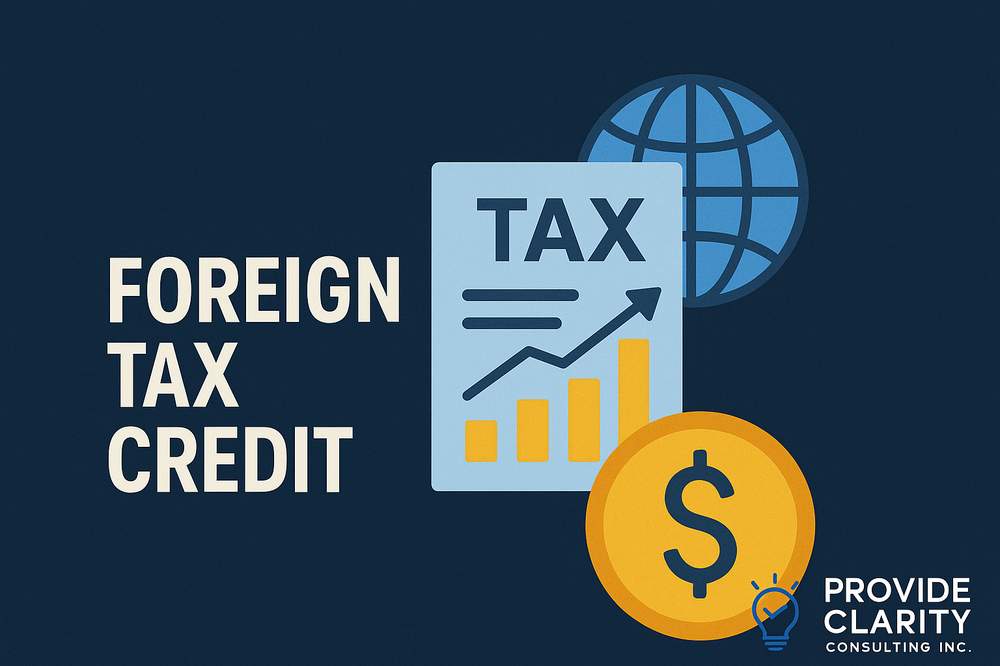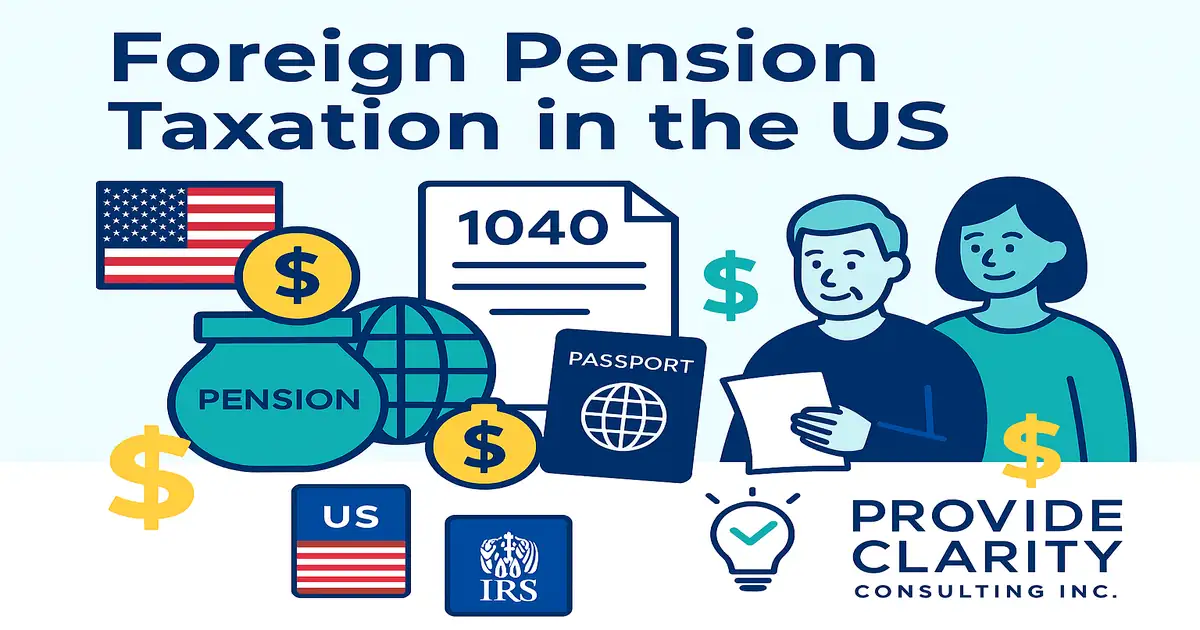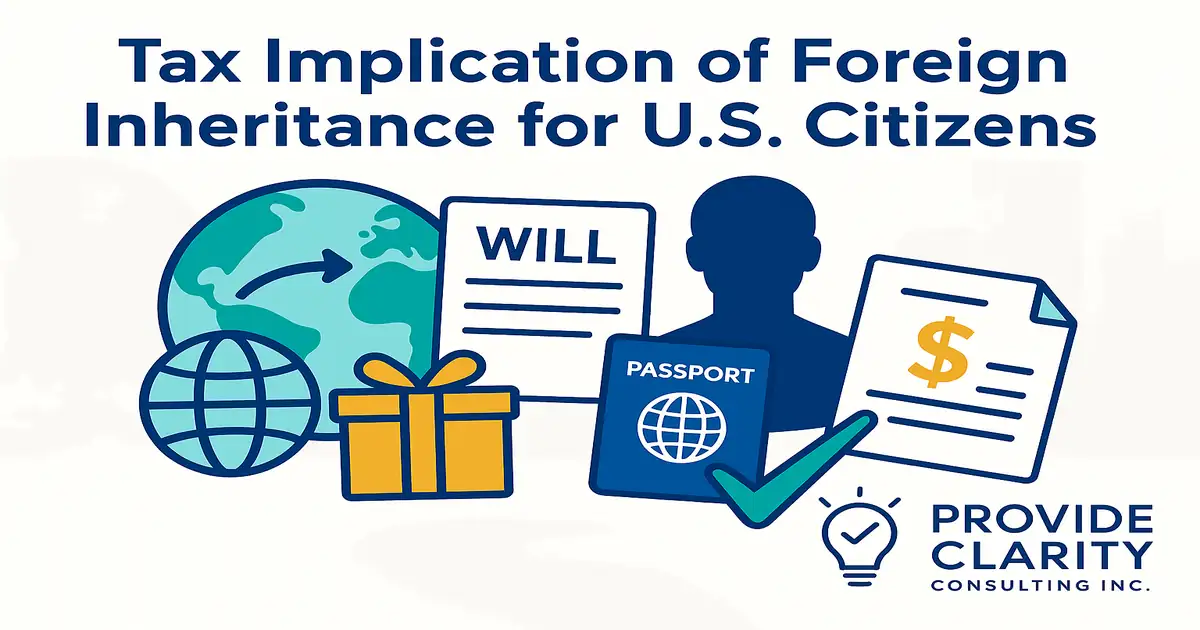Understanding the Foreign Tax Credit: How It Works for U.S. Taxpayers at Home and Overseas (With Real-World Scenarios)
- The Foreign Tax Credit (FTC) prevents double taxation for Americans earning abroad.
- FTC eligibility requires careful documentation and IRS form submission.
- Real scenarios highlight FTC benefits for employees and corporations abroad.
- Professional tax advice can maximize FTC benefits and ensure compliance.
Table of Contents
- What is the Foreign Tax Credit?
- How the Foreign Tax Credit Helps U.S. Taxpayers
- Key Features and Limitations of the FTC
- Real-World Examples and Scenarios
- Important Considerations for Taxpayers
- Practical Takeaways and Actionable Advice
- How Our Tax Services Can Help You Navigate Foreign Tax Credit
- Contact Us for Personalized Guidance
What is the Foreign Tax Credit?
- You earn income outside the United States, and
- That income is taxed by both a foreign government and the U.S.
Without the FTC, Americans working or running businesses internationally could find themselves paying twice on the same dollar earned. The credit allows you to offset your U.S. tax liability with the amount of foreign taxes you’ve already paid, up to the amount of U.S. tax due on that same income.
How the Foreign Tax Credit Helps U.S. Taxpayers
- If you work remotely from France for a U.S. company, or you receive rental income from your vacation property in Spain, the U.S. expects a tax return covering those earnings, as well as anything you earn stateside.
However, many countries tax income earned on their soil, regardless of your citizenship. Without some relief, you’d be taxed twice. Here’s where the Foreign Tax Credit comes into play:
- It directly reduces your U.S. tax bill, dollar for dollar, by the amount of income tax paid to another country.
- It’s especially valuable for individuals, independent contractors, and small business owners operating internationally.
This is a critical concept both for individual tax and small business tax planning. Properly leveraging the credit can result in significant tax savings, and careful tax consulting can make the difference between overpaying and owing nothing extra to the IRS.
Key Features and Limitations of the FTC
1. Eligibility
- U.S. citizens and resident aliens (individuals) who have paid income taxes to a foreign country or U.S. possession
- Domestic corporations with foreign income or operations
Only certain kinds of taxes qualify, essentially, those that look and function like an income tax. Taxes that are fees, social insurance contributions, or penalties do not count.
2. Computation and Filing (Form 1116 and 1118)
- Individuals calculate their FTC on Form 1116.
- Corporations use Form 1118.
Instructions for Form 1116 (IRS)
When preparing your federal tax return, you’ll need records of your foreign-sourced income and proof of the taxes you’ve paid or accrued abroad.
3. FTC Limitation Rules
Foreign Tax Credit Limit = (Foreign Source Taxable Income / Total Taxable Income) × U.S. Tax Liability
This means if the foreign country taxes your income at a higher rate than the U.S., you might end up with unused credits for the year.
4. Carrybacks and Carryforwards
- Carry it back 1 year: Apply the unused credit to last year’s return (if you paid foreign taxes then).
- Carry it forward up to 10 years: Use the leftover credit against your future U.S. tax bills.
This flexibility helps maximize your tax efficiency, especially if your earnings or tax rates fluctuate.
5. Credit vs. Deduction: Choosing Wisely
6. Income Categories and Multiplicity
- Passive income (interest, dividends, rents, etc.)
- General limitation income (wages, salary, business income)
- Foreign branch income
- Income re-sourced by treaty
Why? So one high-taxed source doesn’t offset another low-taxed category.
7. Country Limitation
Real-World Examples and Scenarios
Scenario 1: American Employee in Germany
Jane, a U.S. citizen, is working for an international company in Munich. She earns $100,000 in salary income for the tax year. Germany withholds 20% ($20,000) in income taxes. How the FTC Works:
- When Jane prepares her U.S. tax return, she must report the full $100,000 as worldwide income.
- She calculates her U.S. tax liability on that $100,000.
- She can claim a foreign tax credit of up to $20,000 (what she paid Germany), but only up to the amount of U.S. tax that would have been due on that same income.
- If the U.S. tax liability is $18,000, she can claim $18,000 as a credit. The extra $2,000 can be carried forward (or back, if applicable).
Scenario 2: U.S. Corporation with Brazilian Subsidiary
A U.S.-based C corporation owns a profitable subsidiary in Brazil. The subsidiary earns $2 million in local income and pays $500,000 to Brazilian tax authorities. How the FTC Works:
- The U.S. parent reports the $2 million as overseas earnings.
- It reviews whether the $500,000 Brazilian tax qualifies (is it an income tax? Is it mandatory?).
- If so, the corporation calculates the allowable credit using Form 1118, subject to U.S. tax limits on foreign income.
- If the allowable credit turns out to be $400,000, it may opt to credit that amount (saving $400,000 in U.S. taxes) and carry the rest forward.
Scenario 3: American Entrepreneur in Japan
Mark, a U.S. digital consultant living in Tokyo, earns $150,000 in consulting fees and investment returns. Japan taxes his income at $30,000. How the FTC Works:
- Mark files Form 1116 with his U.S. tax return.
- Due to U.S. income category “basket” rules, he can only apply part of the $30,000 in credit for this year, based on how much of his income falls into each IRS category.
- If there is unused credit (say $10,000), he can carry it back to last year (if he had foreign-sourced income), or forward up to 10 years.
Tip: Even smaller amounts can add up. If you’re a freelancer, remote worker, or business owner with cross-border earnings, keeping meticulous records can save you thousands.
Scenario 4: The Foreign Earned Income Exclusion (FEIE) Interaction
Scenario 5: Passive Foreign Investment Income
Important Considerations for Taxpayers
To claim the FTC, be prepared to provide:
- Proof of foreign taxes paid (receipts, tax assessments)
- Documentation showing the foreign income sources
- Currency conversion records (all amounts must be reported in USD using IRS-approved exchange rates)
2. Tax Treaties Impact Eligibility
Explore the full list of treaties: U.S. Income Tax Treaties – IRS
3. Complex Calculations Call for Professional Advice
4. Small Businesses and Startups
- Avoid double tax exposure
- Optimize use of foreign subsidiaries and entity structures
- Take full advantage of FTC and deductions
Our firm assists with these complexities, so you can focus on business growth rather than compliance headaches.
5. Deductions Versus Credits
6. Specialized Filing Tools
7. Penalties for Incorrect Claims
Practical Takeaways and Actionable Advice
3. Coordinate with FEIE: If you qualify for the Foreign Earned Income Exclusion, map out which income is better excluded versus credited to maximize total tax reduction.
4. Use Carrybacks/Carryforwards: Don’t leave money on the table; carry unused FTCs to prior or subsequent years for additional tax savings.
5. Know Your Tax Treaty Rights: Before paying foreign taxes, see if a treaty benefit could reduce your foreign tax bill and increase your FTC eligibility.
6. Categorize Correctly: Separate your income and foreign tax according to IRS “baskets”, general, passive, branch, treaty-modified, for accurate calculation.
7. Evaluate Deductions: In some cases, especially if your U.S. tax liability is very low, a deduction for foreign taxes paid may make more sense than the credit.
8. Seek Professional Assistance: Given the complexity and ever-changing rules, getting professional help is often the difference between an IRS notice and peace of mind.
How Our Tax Services Can Help You Navigate the Foreign Tax Credit
- Advise on FTC eligibility and strategy
- Analyze and coordinate the FTC and FEIE for expats
- Guide U.S. businesses on foreign subsidiary and investment structures
- Assist with proper form preparation and audit defense
- Maximize allowable credits, deductions, and cross-border tax efficiency
We’re deeply familiar with IRS international tax rules, recent tax law changes, and the nuances that differentiate a solid FTC claim from an audit trigger. Our mission: deliver clarity, compliance, and maximum wealth retention for you.
Contact our team today for a consultation, or explore our tax services to learn how we can help you claim every dollar you deserve through smart planning and expert filing.
- IRS: Foreign Tax Credit
- Instructions for Form 1116
- IRS: Foreign Earned Income Exclusion
- U.S. Income Tax Treaties – IRS
Disclaimer: This article is for informational purposes only and does not constitute legal or tax advice. For personalized guidance, consult a qualified international tax professional or contact us to discuss your unique needs.




